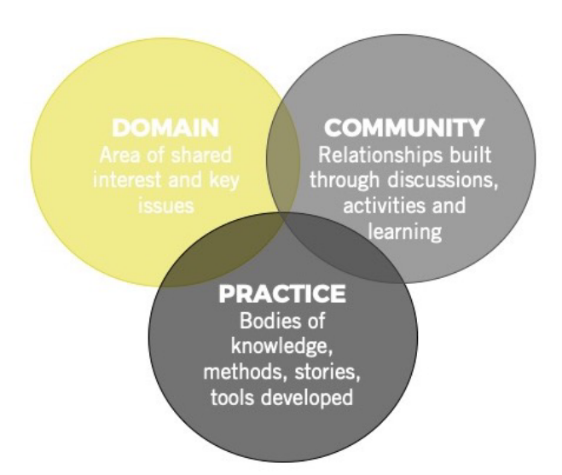Mary Stevens22 Nov 2021
Last summer I decided to organise a Clean Air Day event at my daughter’s primary school. We have an air pollution monitor on the roof of the school and I also wanted to share data from monitors on the adjoining main road to draw attention to the scale of the problem.
Air pollution data is technical and sometimes hard to interpret. I’m not the first activist to have struggled with this, and I won’t be the last. I’m not an air pollution expert, or a data specialist, and having navigated Local Authority websites and found the real-time data, there was no way that I could distil it quickly and with confidence into some locally-specific information for fellow parents.
A small amount of expert advice can build confidence and unlock doors.
This experience really brought home to me the untapped and sometimes wasted potential in our communities. There is so much duplication and starting from scratch, just when the crisis requires us to move fast.
What if I had been able to contact a more experienced campaigner, or an air pollution researcher, to answer my questions and help me think through how to present the data to other parents? Our job is to keep up pressure on decision-makers - not to implement solutions - so it’s important not to get bogged down in technical debate. But how could we make it easier to access the expertise people need to drive forward action for nature and the climate?
Our network is our strength.
There is so much knowledge and experience in Friends of the Earth’s network, both within our activist community and the academic and other experts who support our campaigners. But enabling people to make the connections they need, when they need them, is a huge challenge. It’s one we’ve been grappling with for many years. We’ve tried lots of different things: from Yahoo groups and email lists to Slack groups. Each new generation of activists brings new challenges. As our activist base has grown in the last couple of years, so has the problem of building a ‘true’ network. A centralised hub-and-spoke model is resource intensive and no longer fit for purpose – but how do we create the conditions for a mycelium-model to thrive, with multiple points of connection?
In the Experiments Team we’ve been exploring this problem in a joint project with our Activism and Policy and Insight teams. Here are a few things we’ve learned along the way, and where we might go next as we start to develop and prototype solutions.
When and why do people share?
Because they know and trust people – and feel a sense of obligation. When a friend asks me for advice on something I know about I almost never refuse, however busy I am. As an organisation this means strengthening the ties and relationships not just within groups, but between them. That’s been hard during the pandemic, when we haven’t been able to arrange regional get-togethers, for example. Are there ways we can accelerate the building of relationships?
Because it benefits them. Connecting people gives me a lot of personal satisfaction. A benefit can be as simple as a feel-good factor (although it helps to know you really have made a difference) but other forms of recognition can help too. What is the activism equivalent of being a ‘trusted or valued contributor’, a key node? What are the (non-financial) rewards and incentives that work? Could online badges or other tech ‘shortcuts’ help with this? What can we learn from people’s motivation to provide content or help on LinkedIn for example? Or alternatively, what can we learn from nature about how resources are shared in symbiotic relationships?
Context matters. The optimal conditions for sharing are where there is a good overlap between a domain (the area of knowledge in question), a community (relationships are strong) and a shared practice (a sense of not just ‘being’ but doing together). The model below from the Finance Innovation Lab was particularly helpful in understanding this dynamic. What if we tended to the soil in which our relationships form, as much as to the plants or fungi that pop up above ground?
What gets in the way of expertise sharing?
Competition for attention. In our media-saturated world attention is our most precious commodity. And it is spread very thin. As a specialist I might like to help out, but if I’m constantly flipping between multiple platforms – Reddit threads, Instagram, Twitter, Telegram, WhatsApp – as well as organising communities such as Mighty Networks, or Slack it will be hard to capture my attention. If I need to be on yet another platform to access and share information then unless it’s regularly and directly meeting my needs I’m unlikely to spend much time there. Even environmental and social justice campaigning is becoming a more crowded space - a good thing in many ways, but lots of emerging movements and organisations can also be experienced as a lot of noise.
Lack of reciprocity. In the past knowledge sharing has sometimes felt like a one-way street for our activists. More experienced campaigners didn’t always feel like they got a lot from sharing with newer activists, and sometimes acted as gate-keepers to domain knowledge as a consequence. Recognising that successful campaigns require a huge diversity of skills, and that everyone has experience of their own to bring can help here, but careful moderation and brokering is an essential part of this mix. And that can be resource intensive.
Un-focused asks. It’s much easier to respond to someone who wants to know what to make of a data set, or how to approach a particular audience or event than to talk about a generic query such as “what can I do about air pollution?”
What next?
Some of the solutions to this problem are systemic – building stronger relationships in our network isn’t a challenge well suited to a quick prototype. But we are starting to test out some small interventions that might reduce the barriers to sharing, for example we are prototyping a ‘book an expert’ offer with our Policy team, so that activists who attend a webinar on a particular topic can use an automated booking to arrange a quick follow-up consultation. If this works we’d like to extend it to a wider network of expert supporters, and ultimately reduce our central contribution.
We’re also exploring how we can work with specific groups such as early career researchers, or recently retired subject specialists, and thinking hard about where the mutual benefit lies.
But if you have an idea for cracking this problem or have seen someone do it really well we’d love to hear from you. Get in touch at [email protected]. Meanwhile, I’ve carried on meeting up with a friend to talk about air pollution round the school. It’s partly because I want to see action. But it’s mostly because she does too – and she’s my friend.


